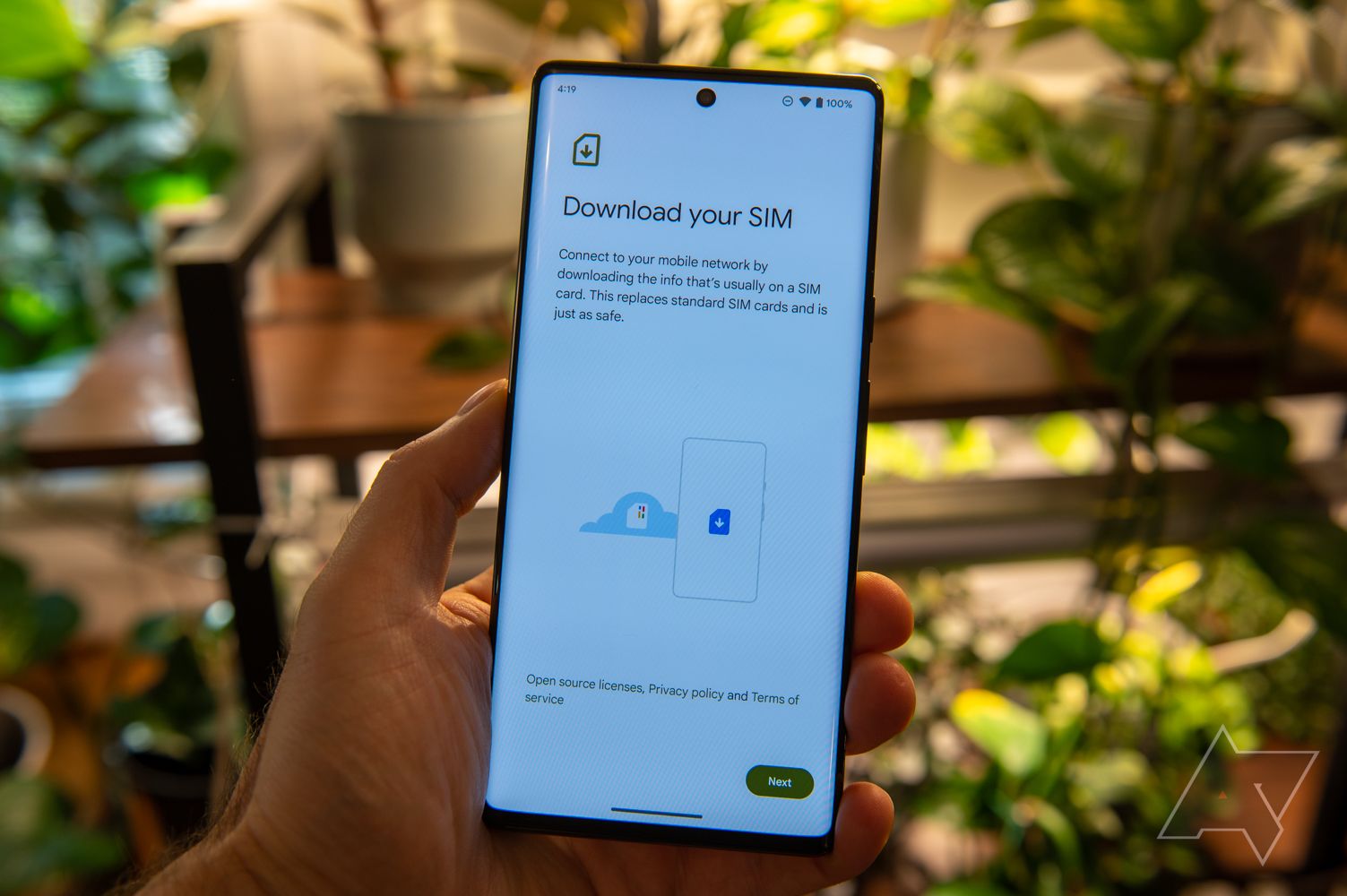Apple's latest iPhone series has gone all in on eSIMs for users in the United States, completely ditching the physical SIM cards we’ve all been slotting into our handsets for years. With this increased commitment, it's only a matter of time before Android OEMs rush to bring the same change to their side of the market, with Google helping to ensure a smooth transition. Today at MWC 2023, Google finally announced its eSIM plans for Android phones as the company works to streamline the experience users deal with ahead of the inevitable death of physical SIM cards.
Currently, it's not possible to smoothly transfer your eSIM profile from, say, your Samsung Galaxy S22 to the Galaxy S23. To do so, you must first unregister the eSIM profile on the legacy device before reactivating it on the new one. In some cases, you may need to contact your mobile carrier to complete the task. That's finally changing this year, as Google announces the upcoming rollout of eSIM transfer capabilities coming to Android in 2023.
Once the eSIM transfer capability is widely available, the process will undoubtedly become much more seamless. Google says Deutsche Telekom is one of the first carriers to adopt eSIM transfer on Android handsets in this capacity.
Today's announcement comes after months of leaks showcasing Google's eSIM upgrades for Android. In recent QPR2 betas, we've seen evidence of the ability to convert a physical SIM card to eSIM, alongside the transfer tools the company announced today. It's an exciting change ahead of what is likely to be a mass adoption of eSIM, particularly as smartphone manufacturers ready new devices in the wake of Apple's iPhone 14.
Also at MWC, Google is also placing the spotlight on recent partnerships intended to bring Android's latest software enhancements to more devices. In order to further expand the reach of RCS, Vodafone is making the Messages app the default messaging service on all eligible Android phones. This comes as Google begins to simplify the RCS branding across the board.
The company also highlighted recent smartphone launches from its partners in Samsung, OnePlus, Oppo, and Xiaomi, particularly citing how each company used Android features like Nearby Share and digital car keys. This all comes alongside a brand-new set of Android features rolling out from today, and a promise that Fast Pair for Chromebooks will finally arrive in the near future.
Software support was also a major focus at Google's MWC event, with Google reiterating its partners committments to longer Android OS upgrades and security update schedules. Samsung continues to lead on that front, with four years of major OS updates and five years of security patches. During the Xiaomi 13 series debut at MWC 2023, Xiaomi also promised three OS upgrades for the new flagship phones and five years of security updates.

